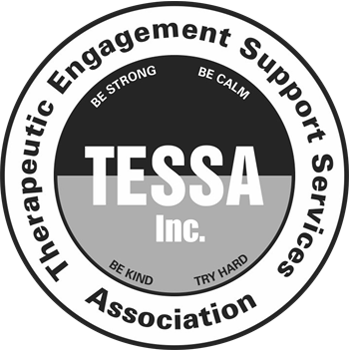
37,472
young people empowered by the life skills learned through our Life Skills Programs
Our Life Skills Programs
An active modality that combines the principles of mental wellbeing and emotional regulation with those of therapeutic martial art training techniques.
A program targeting secondary school students where participants are empowered to find, build & live their core values by using a series of structured of PE strength-based activities.
Gender based respectful relationship programs suitable for high school aged students unpacking helpful and unhelpful narratives in our culture with a combination of MAT Life Skills & CORE physical activities
Active therapeutic programs that assist students to learn the life skills required to more effectively manage the challenges in their lives.
Delivered in primary, secondary and specialist education settings – can include staff education session. Programs can be tailored for each school’s needs, but are typically either 8 or 16 weeks in duration. The longer duration Programs are usually for Peer Education and/or VCAL Personal Development components and are tailored to student/school requirement.
Our Instructors work in collaboration with the host school in order to communicate the life skills or set of values that are more important for that particular group or student (e.g. use and reinforcement of that particular school set of values).
Life Skills Program uses an evidence based approach including pre and post group surveys, school interviews, key success measures and risk management strategies throughout the planning, delivery and reporting phases of the program.
In addition, our program uses the Australian Curriculum on Personal and Social Capabilities as a reference tool to support the development of young people in key areas such as:
Self-Awareness
Self-Management
Social Awareness
Social Management
HARM PREVENTION STRATEGIES
Life skills programs work with vulnerable students presenting risk behaviours or school disengagement. This is called “targeted interventions” and involves the structuring of specific sessions working with up to 12 students, and in many cases 1 on 1 sessions depending on the complexity of the participant’s harm prevention needs.
In order to participate in our targeted interventions, schools identify students with the following risk factors:
Declining attendance and/or incidents of suspension and expulsion
Mental health issues (diagnosed and/or undiagnosed)
Homelessness or risk of homelessness
Family violence
Family breakdown and/or a crisis
Drug and alcohol dependency
Criminal behaviour/contact with the juvenile justice system
Low educational achievement and negative educational experiences
Family intergenerational unemployment.
Students manifest those risk factors with a set of behaviours that impact their social relationships at school, home and in the community. Also, manifesting as well in poor academic performance and educational disengagement. Such behaviours of concern can be categorised as follows:
Physical abuse to peers and/or members of the school community manifesting in direct physical aggression (striking, kicking, slapping), throwing of school equipment and destruction of school infrastructure (e.g. windows, doors, chairs)
Bullying and abusive behaviour to other students due to lack of emotional regulation or poor role modelling at home (e.g. domestic violence)
Emotional abuse in the form of yelling, defiance and lack of respect. This can be manifested towards peers or staff of same gender and/or issues with different gender
Sexual misconduct which is represented by lack of understanding and respect towards other people’s boundaries, personal spaces or bodies
Self-harm which is the result of incapacity to understand and manage emotions or have access to positive coping mechanisms
Substance abuse either by pressure of peers or in many cases because of family environments that provide negative role modelling experiences.
This information is disclosed either in our booking forms, or more commonly in our meetings with school representatives. Thus, enabling specific program design in order to fully meet the objectives of the intervention.
Depending on the profile of the participants and objectives of the school or community agency, our sessions will support students by:
Learning how to avoid harmful behaviour in the form of early identification of triggers, physical reactions, environment and other strategies that prevent the development of harmful reactions.
Overcome harmful behaviour with specific strategies based on considerate relationships, effective communication and respect for the clear establishment of boundaries and expectations.
Recovery from harmful behaviour when the victim of bullying or physical/emotional abuse. Through a series of exercises and strategies that reminds them of the importance of self-worth, agency and resilience.
The objectives of these targeted interventions are primarily for the reduction of behaviour of concern stated above and this is captured in the evaluation forms provided to every school. The results of those evaluations are verified by independent third parties such as the Statistical Consulting Centre of The University of Melbourne (see https://tessainc.org.au/impact)
Further evidence of the impact of our program as a Harm Prevention Strategy can be found in this written testimonial by School Focused Youth Service Mackillop (Click Here).
TESTIMONIALS
Audio Testimonial of Harkaway Primary School Principal, Leigh Johnson
“The students thoroughly enjoyed the program. It helped them to recognise their feelings and ways to deal with these. They learnt to control their emotions more positively and how to apply these strategies in everyday situations. We would definitely recommend this program to other schools.”
“It has helped our students understand emotional regulation and how that ties into real life. They have had the chance to practice this which is usually a difficult exercise to have them engage with.”
“The Life Skills Program has gotten students started on the social skills that will help them inside and outside of school.”
“The Life Skills program enables students to reflect on their behaviour and look at positive ways in which they can make changes. It helps students with self-confidence and gives them the encouragement to engage with teachers and persist in getting the help they need.
The belief the program gives them in themselves helps their resilience and challenges any entrenched negative attitudes to education.”
“The program has helped our son control his reaction to situations and persons. He has been able to walk away and use the skills learnt to remain calm rather than react and find himself in trouble. We definitely would recommend the program to other people and schools.”
“We were really impressed in the program. It had a positive effect on our students in different ways. Some took on the self-regulation skills, others we saw a rise in confidence. But mostly we saw students supporting each other in ways they wouldn’t have in the past.”






